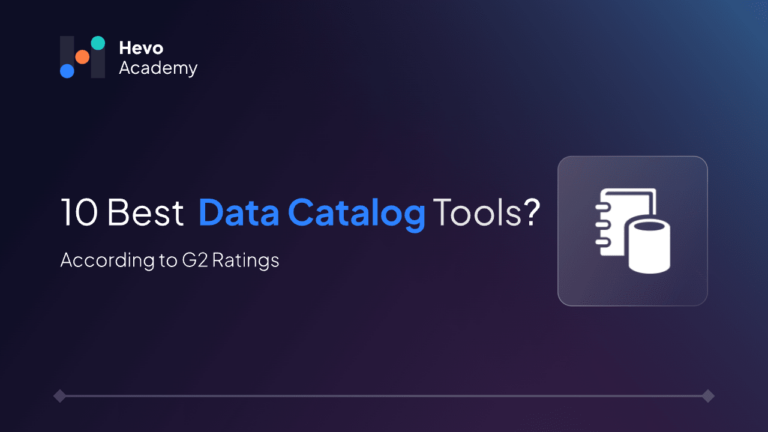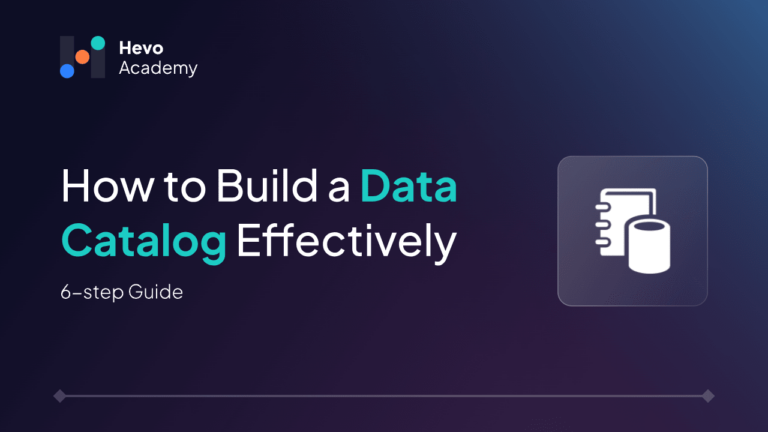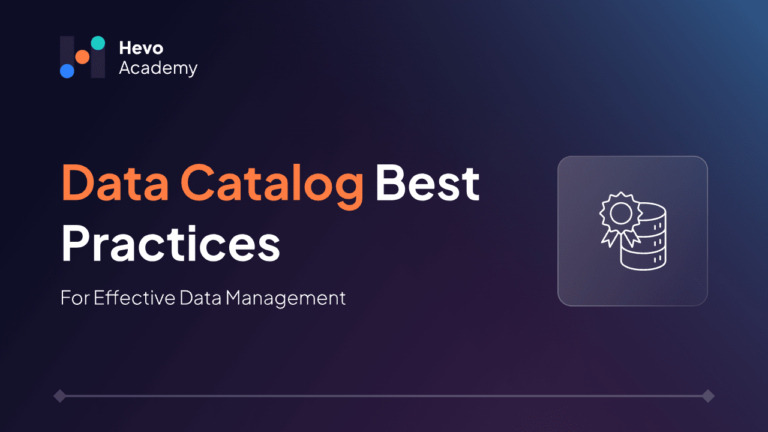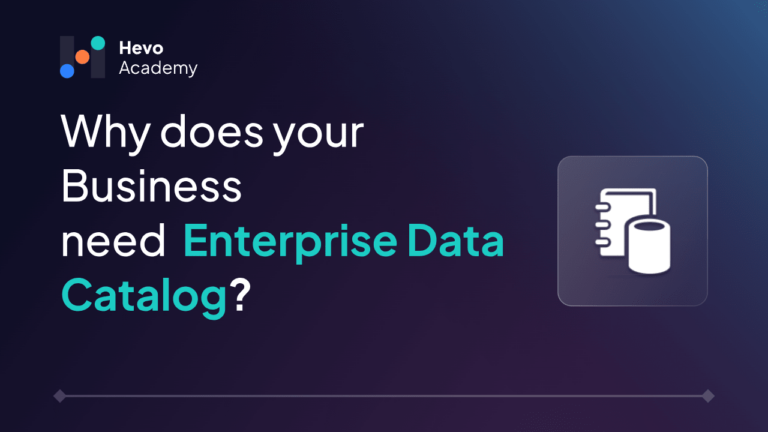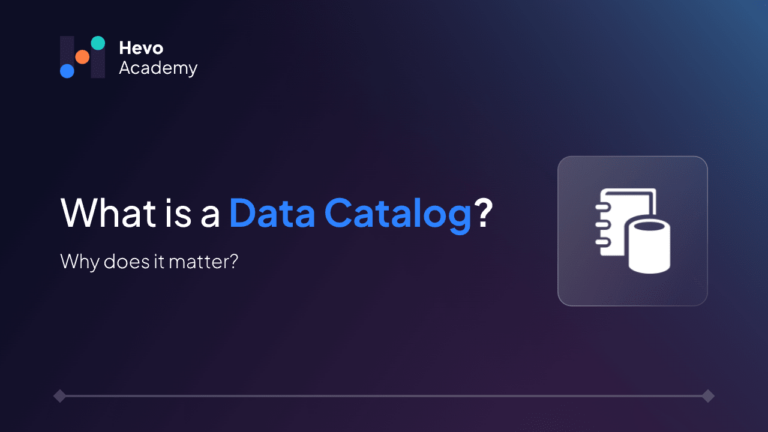The data produced and collected by enterprises is increasing significantly. Managing large amounts of data and deriving insightful decisions is of utmost importance. Nowadays, Data is neither collected from a single source nor stored in a single destination; it is usually stored and utilized in various locations. This is precisely why there is a need for tools that keep data managed and accessible. These tools are called data catalog tools.
Table of Contents
In this blog, we’ll discuss data cataloging, its needs, and the best data catalog tools available today.
What is Data Cataloging?
Data cataloging refers to the building and maintenance of catalogs of metadata through which business users can easily find and access data quickly and make data-informed decisions. It helps make data more accessible and enables data classification. A data catalog tool provides a complete package, including metadata, data management, and search tools. In order to make each asset easier to find, a data catalog can enrich its metadata continuously. Data dictionary tools improve the effectiveness of data catalogs by ensuring that all data elements are clearly defined and consistently categorized.
The Need for Data Cataloging
With large amounts of data stored across many platforms, finding and leveraging the right data within an organization can prove troublesome. Data cataloging solves such problems by providing the following:
- It enables users to find relevant data across multiple systems in the cloud or on-premises.
- The data cataloging shows the visibility of data from source to destination; thus, it supports data lineage.
- It also helps teams share knowledge more easily by contextualizing data so that users across domains are all on the same page.
- Data cataloging also ensures that data quality is maintained and that there is adherence to required security demands.
While data catalog tools are in place to organize and manage your data, Hevo makes the entire process of data integration streamlined. Hevo is an entirely automated, no-code platform that makes integration and management of multiple sources of data simple through it. Hevo allows you to start creating real-time pipelines within minutes of setup so you can focus more on making data-driven decisions.
With its dynamic features such as:
- 150+ pre-built connectors for seamless migration of data from various sources to destinations.
- Support for both pre-load and post-load transformations.
- An easy-to-use user interface, no need for any prior knowledge of coding.
- Fault-tolerant architecture ensures there is no data loss.
- Provides real-time integration to make sure your data is always up-to-date.
Elevate your data management process today with Hevo and experience seamless data integration.
Get Started with Hevo for FreeList of 10 Data Catalog Tools
1. Alation’s data catalog

G2 Ratings: 4.4 out of 5 (65)
Alation empowers users to make sound decisions by providing them with speedy and quick access to their reliable data sources. The Alation catalog uses AI/ML in its product to constantly identify and pinpoint the right information whenever a user types a keyword. It also allows a user to see descriptions, lineage, tags, terms, documentation, and links attached to every source of the data. Alation offers users access to over 100 connectors for access to all of their data assets.
It provides various collaboration functionalities along with features like notification, which notifies users as soon as a change in data occurs. Furthermore, SQL can be utilized to accelerate the work, and users will get the results they wish for.
2. Atlan Data Discovery & Catalog

G2 Ratings: 4.5 out of 5 (105)
Atlan’s Data Discovery and Catalog service allows users to manage and collaborate on common workflows easily. It also comes with various data tools and services to ingest data, and users can use the metadata to find relevant data from this data pool. Just like Alation’s data catalog, Atlan has both NLP (Natural Language Search) and support for SQL queries.
Atlan is an easy tool for quite a number of data management needs. It further gives users insight into managing changes and seeing when and where changes to the data were made. Atlan supports customization for users of metadata ingestion using open APIs.
3. IBM Knowledge Catalog
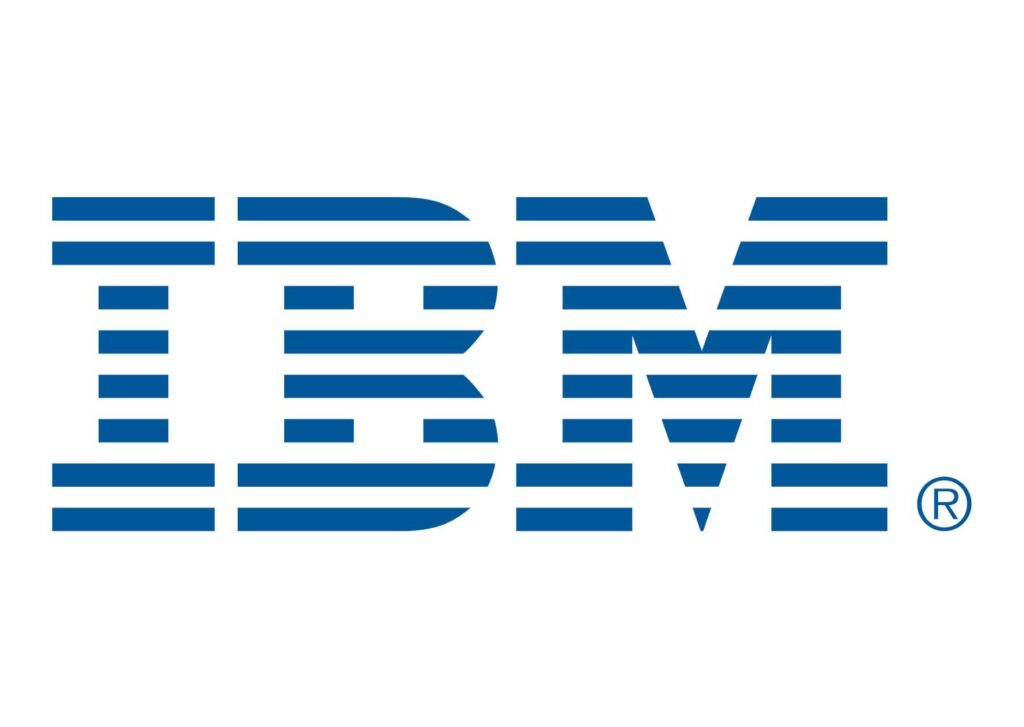
G2 Ratings: 4.1 out of 5 (19)
IBM Knowledge Catalog can catalog various data assets, including structured, semi-structured, and unstructured ones. It is a metadata store designed to serve ML and AI. IBM Knowledge Catalog, along with all the other IBM services like Infosphere, offers data governance and quality. It further provides intelligent categorization and support for cataloging capabilities.
It tracks data lineage and supports various connectors that connect services from IBM and external sources. Knowledge Catalog ensures security and governance through sensitive information masking. This catalog auto-generates the process of data discovery, data quality, and data protection. The most recent version of the Knowledge Catalog also provides relationship diagrams for better visualization.
4. Collibra Data Catalog

G2 Ratings: 4.3 out of 5 (77)
Collibra is a data catalog service offering more than 100 native integrations. It also allows users to search for and assess data within its marketplace quickly. It provides automatic classification and AI asset descriptions, improving productivity while saving time. It also supports end-to-end lineage across data sources and systems.
It also supports data curation services and data governance. Its user-friendly interface makes it easy to use, and it does not require extensive SQL knowledge to work. This data catalog tool provides a business glossary function with standardization of terms and descriptions. It also supports graph-based metadata to provide as much information as possible about data quality and lineage.
5. Informatica Enterprise Data Catalog

G2 Ratings: 4.3 out of 5 (21)
Informatica EDC is a data catalog tool that provides business users with powerful search capabilities, data lineage, profiling statistics, and an integrated business glossary. Using these will filter search results quickly and efficiently manage enterprise data assets. EDC also provides AI capabilities and a Machine learning-based discovery engine that assists in cataloging data assets.
EDC also provides collaboration capabilities and the power of AI in data curation, which does much automation. Some of its primary features include semantic search, automatic classification, and embedded data quality. Data sources supported in Informatica EDC include databases, warehouses, ETL tools, cloud platforms, and file systems.
6. Google Cloud Data Catalog
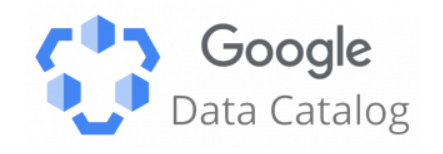
G2 Ratings: 4.4 out of 5 (28)
The cloud data catalog is Google’s central inventory of an organization’s data assets. It is a fully managed and scalable metadata management service that allows users to quickly discover and manage all their data in Google Cloud. It provides a flexible cataloging platform for storing and managing technical and business metadata.
Its functionality is divided into two functions: it searches for data entries you have access to and tags them with metadata, and it provides column-level security and sensitive data protection. Google Data Catalog can catalog asset metadata from various Google Cloud platforms such as BigQuery, Google Cloud Storage, Spanner, and more.
7. data.world
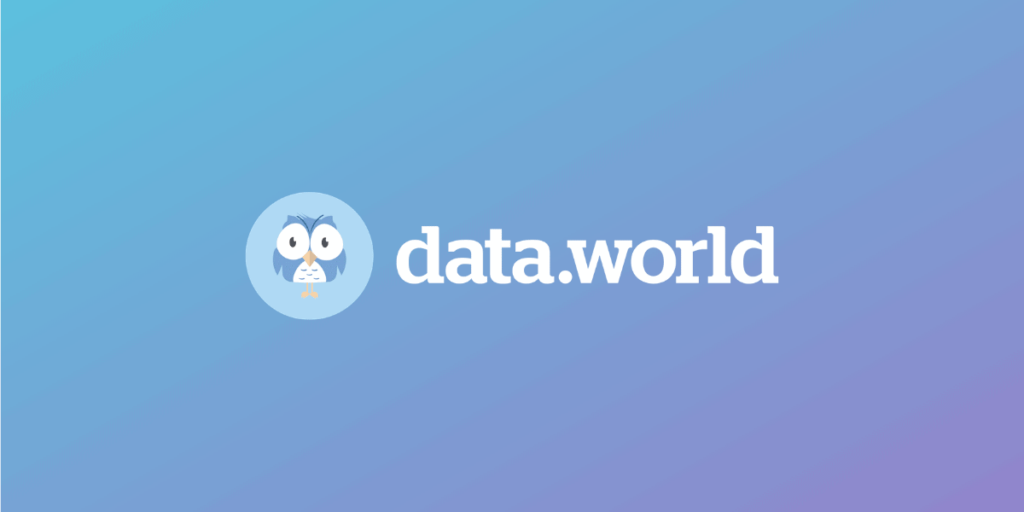
G2 Ratings: 4.2 out of 5 (13)
data.world is an AI-powered Data catalog platform that automates the data team’s work and provides them with accurate data for business decision-making. It offers three bots for metadata enrichment, access workflows, and data quality. It also provides a wide range of integrations with various data warehouses, BI tools, and SaaS applications.
The data catalog of the data.world is powered by knowledge graphs, which make you understand the data better and more precisely. It can also find information quickly. It can discover and leverage data from on-premises as well as the cloud. It offers a data cataloging service and also data governance to make sure your data remains secure and in compliance.
8. Ataccama Data Catalog

G2 Ratings: 4.2 out of 5 (11)
Ataccama is a new-age data catalog tool that allows users to automate data discovery, quality, and observability. It also enables users to collaborate on data assets with tasks, comments, and sharing features. In addition to being a data catalog tool, it provides data governance with better and more granular data stewardship.
Ataccama offers built-in data stories and a visual data explorer to create data stories directly in the catalog. It also gives the user the option to share these data products organization-wide. It provides connectors with all significant data sources, such as databases, data lakes, data warehouses, etc. ataccama also provides self-driving data monitoring for data quality issues.
9. AWS Glue Data Catalog
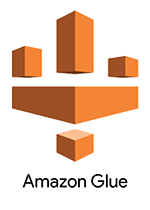
G2 Ratings: 4.2 out of 5 (189)
AWS Glue Data Catalog is a centralized repository for storing metadata from various data sources. This metadata collected from multiple sources is stored in metadata tables, where each table stores a single data store. This data catalog tool works well with AWS services like AWS Athena, EMR, and SageMaker. AWS provides a crawler that discovers data sources and automatically extracts metadata.
The data catalog by AWS Glue is a repository for the information related to the location and schema, among other properties of the data source properties. AWS Glue Data Catalog automatically captures and manages schema and also provides lineage information for data auditing and compliance.
10. DataHub

G2 Ratings: 4.6 out of 5 (4)
DataHub is an open-source metadata platform designed for data discovery, AI governance, data observability, and collaboration. It allows you to detect data anomalies with automated checks and AI. It provides extensive support and has a solid community to solve all user queries. It also allows users to track data lineage and profile datasets, thereby efficiently understanding their data.
DataHub’s architecture allows companies to scale quickly as metadata grows. It also provides advanced querying capabilities and a filter sidebar.
Benefits of Using Data Catalog Tools
Using a data catalog ensures a number of benefits for modern businesses:
- Data discovery is very fast. Data catalogs enable users to spot exactly the data they need quickly, so that decisions are made promptly.
- The data catalog ensures the assurance of data assets through proper documentation, thus eradicating ambiguity and achieving the quality and accuracy of data within departments.
- Through the cataloging of data lineage, ownership, and usage, an organization can enforce all governance policies and stay current with regulatory compliance.
- With automated discovery of data and management of metadata, operational costs decrease, and teams can focus more on value-added activities to improve productivity.
- In fact, catalogs help increase data security since they provide clear visibility of some sensitive information while controlling who can have access to the same.
Conclusion
Data catalog tools are essential for businesses looking to manage their data. The right tool makes all the difference in how you can find, organize, and govern your data. There are various tools in the market with different features and purposes.This blog has discussed the ten best data catalog tools and will help you choose between them.
If you are looking to further enhance your data management requirements, Try Hevo for seamless data integration and experience seamless migration. Sign up for Hevo’s 14-day free trial.
FAQs
1. What is a data catalog?
A data catalog tool is the one that will create and maintain metadata catalogs to help identify and exploit data assets coming from different sources.
2. Is Collibra a data catalog?
Yes, Collibra is a data catalog tool designed to build and maintain a metadata repository.
3. Who needs a data catalog?
Businesses that work with or rely on large volumes of data from multiple sources to make their decisions need a data catalog.

